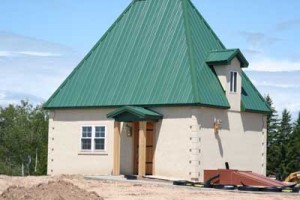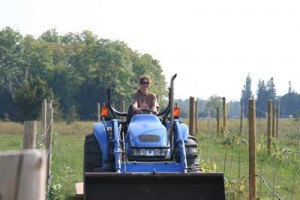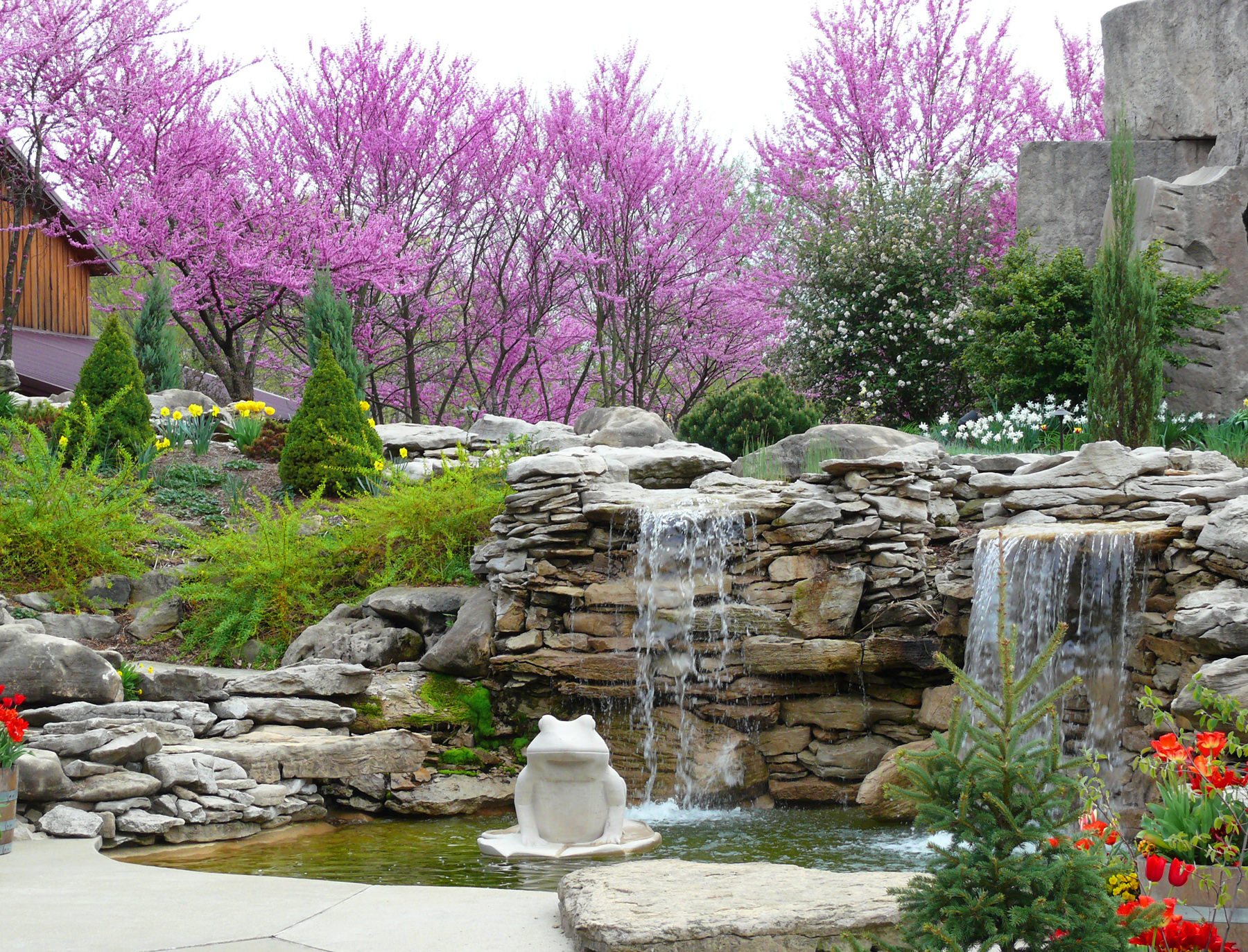Northern Sun Winery Rises in the UP of Michigan
Northern Sun Winery, one of the first wineries in the Upper Peninsula of Michigan (UP) to make wine from grapes grown in its own UP vineyard, will open in July, according to owner David Anthony. “Our winery is currently a small operation, but what we lack in size, my wife Susie and I make up for with our passion for winemaking,” he said.
Northern Sun will be located about 12 miles west of Escanaba near an Indian owned casino. Anthony said there is tourist traffic through the area in both summer and winter to support his business, which will be enhanced by the addition of a distinctive European style tasting room near the vineyard that he and Susie are using their own funds to construct. Planned initial production for Northern Sun is around 500 cases. Anthony said he expects production to increase as vines that were planted two to three years ago mature.
The long process of starting the winery began in 1999 with plantings of Leon Millot, Baco Noir, and De Chaunac. Anthony said that while he learned to coax a decent crop from these French-American hybrids, it was advances in cold climate varietals bred by the University of Minnesota that were a major factor in the decision to open a winery.
“The game changer for me was the success we are having with cold climate varietals like La Crescent and Marquette,” Anthony said. “We can make good wine from our own grapes, and my vines and I are living proof that you can grow cold climate grapes in the UP.” Anthony also grows Elmer Swenson varietals like St. Pepin and Brianna in his 3.5 acre vineyard.
Anthony said that his grapes benefit from the same Lake Michigan induced microclimate that makes grape growing viable in Door County Wisconsin and Traverse City, Michigan. But the Northern Sun location is colder than either of those areas. “I’m growing and planting vines in growing zone 5a that were mainly intended for zone 6a,” Anthony said.
Anthony’s vineyard is above 45 degrees North, north of the world’s “wine belt” which is generally thought to extend to 44 degrees north. However, Paul Jenkins, who was one of many experts from Michigan State University (MSU) who assisted Anthony with getting started said, “You can get enough heat units (growing degree days) to ripen cold climate grapes in the UP. However you’ll want to be careful when selecting your vineyard location.”
Anthony worked with various people at MSU – including Jenkins and professors Tom Zabadal and Paolo Sabbitini – who taught him to use a double trunk training system with a single curtain, six-foot high cordon trellis. (All Anthony’s vines are on a single curtain, high cordon trellis except for Marquette which uses a VSP trellis.) Having two trunks on the grapevine provides some insurance. If one trunk is killed, the other trunk will provide some production until the dead trunk can be replaced, according to Dr. Gail Nonnecke at Iowa State University.
Over the course of hundreds of phone calls and emails to MSU, many with pictures of his vines attached for review, Anthony said he learned to control weeds and disease in the harsh UP climate. He also learned that in order to get fruit to ripen, he can expect to touch each vine five to six times a year. Regular leaf removal, sucker removal, and shoot positioning are the types of regular manual labor that Anthony said is required to get quality fruit in the UP.
Anthony also works in community relations for the local Hannahville Indian Community which is part of the Potawatomi Tribe. He served in the Michigan State Legislature for eight years and was a member of the Michigan Wine and Grape Council from 2006 to 2010.
[stextbox id=”custom” caption=”Upper Michigan Wineries” shadow=”true” float=”true” align=”right” width=”350″]
Mackinaw Trail Winery, Manistique, MI
SU&D Winery, Marquette, MI
Threefold Vine Winery, Garden, MI
Garden Bay Winery, Munising and Garden, MI
Black Star Farms at Katydid’s of Hessel, Hessel, MI
Leigh’s Garden Winery, Escanaba, MI
Source: Michigan Wine Country Magazine 2012
[/stextbox]Meanwhile, another Upper Peninsula winery, Mackinaw Trail, is moving its production across Lake Michigan to the Lower Michigan city of Petoskey, according to winemaker Ralph Stabile. Mackinaw Trail Winery will keep its successful UP tasting room in Manistique open, but all winemaking will move from Manistique to a new 5,000 square foot production facility in Petoskey during August. The new building will also have a tasting room and office space with an additional combined area of 3,200 square feet.
“We expect our production to double over the next few years so we needed more space,” Stabile said. Mackinaw Trail currently produces 7,000 cases per year using 100% Michigan grown grapes.
Stabile said that the larger year round population and the number of vacation homes in Petoskey were other reasons he moved winemaking operations there. “We know from experience that one percent of people driving by our tasting room in Manistique will stop in, and the number of additional potential customers around Petoskey, Charlevoix, and Harbor Springs will be good for business,” he said. In addition, Stabile said he is in discussions with other Petoskey area winemakers to start a wine trial, something that is not yet possible in the UP.
The population of the UP has remained nearly constant over the last 20 years with just over 300,000 residents occupying an area twice the size of New Jersey. Now a heavy mineral mining boom is creating both economic hopes and environmental concerns. When the new copper mines are exhausted, there should be plenty of sustainable vineyards in the UP to fall back on.
Editors Note: This story was edited after original publication to include the fact that Threefold Vine Winery in Garden, MI has been making wine from estate grown grapes since 2006 and is therefore probably the first winery to do so in the Upper Peninsula. Please visit Threefold Vine’s website at http://www.exploringthenorth.com/threefold/vine.html to learn more. Leigh’s Garden Winey in Escanaba, MI has also been making wine from estate grown grapes since 2009. More info on Leigh’s Garen is available at http://www.leighsgarden.com/Leighs_Garden_Winery.html
[wp_geo_map]





